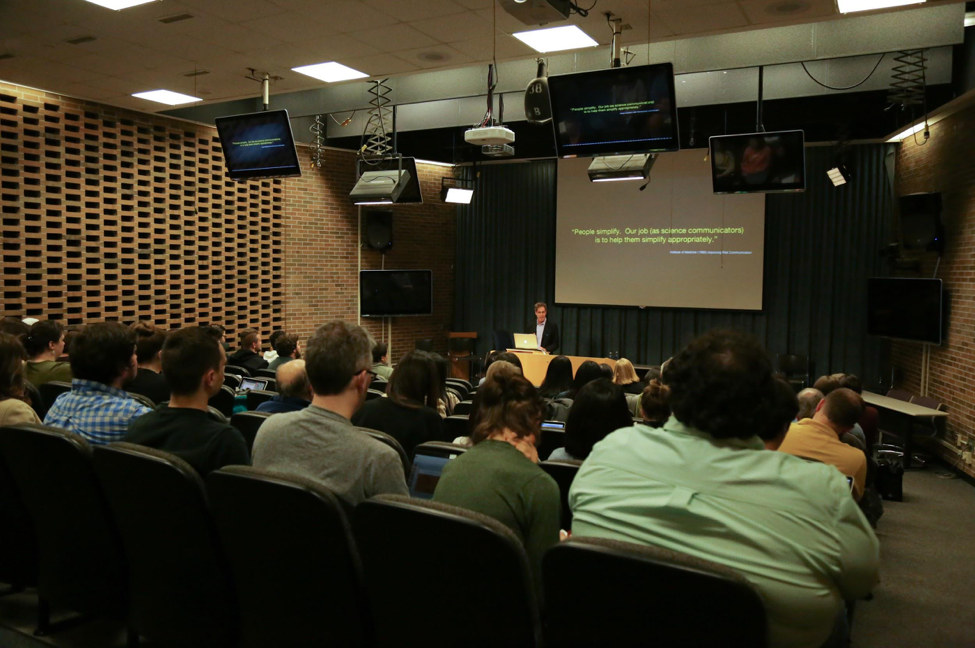On April 21 – one day short of Earth Day – the College of Communication Arts and Sciences welcomed Dr. Edward Maibach, director of George Mason University’s Center for Climate Change Communication, to speak at the annual Bettinghaus Endowed Lecture organized by the Department of Communication and the Health and Risk Communication Center.
During a time when questions about our impact on the planet seem endless and recurring, Maibach highlighted how important it is to encourage people to learn and discuss the issue of climate change and its effects. He shared with faculty, students and staff of the college about his research on TV weathercasters as vehicles to spread news about this important issue via a segment called Climate Matters.
He spoke about how people trust scientists to provide information related to the environment and other scientific debates. However, just behind that group, people rank TV weathercasters high on the list of trustworthy sources. Maibach supported this by explaining that they have the trust of the public, access to the public and great communication skills. He credits experiential learning as a factor that helps people engage with issues and become more knowledgeable and aware of matters like climate change.
"Dr. Maibach’s work is cutting-edge both in terms of methodology and substance. He is creating innovative models for studying the effects of the news on people’s beliefs and attitudes," said Maria Lapinski, professor in the Department of Communication.
Partnered with Climate Central, an independent organization of leading scientists and journalists researching and reporting the facts about our changing climate and its impact on the public, Maibach and researchers provide the newscasters with the information and digital content necessary to reach audiences such as maps, severe weather trackers and more. So far, 390 weathercasters have been a part of Climate Matters and numbers are growing.
Dan Totzkay, a Ph.D. Communication student, attended the lecture and called it ""exciting and interesting."" As a fan of Maibach’s work, Totzkay said the presentation got him thinking about his own research and taking inspiration from Maibach to design better campaigns and know where to look.
Being that Maibach’s lecture was on the day before Earth Day, it was fitting that a group of people came together to educate themselves about how being conscious of issues such as climate change can benefit the future of our planet.
""Not only is it Earth Day, but also the March for Science. It’s about protecting the Earth,"" said Totzkay. ""We’ve only got the one, so this is pretty pertinent because, for whatever reason, (climate change has) become so controversial, even though it shouldn’t be … I think finding people like weathercasters or anyone else who people will listen to is so crucial.""
The next part of Maibach’s research is in the works. Currently funded by the National Science Foundation, among others, the team recently submitted a second NSF grant proposal. Together, Maibach and his researchers are preparing for the future of the organization.
The Bettinghaus Lecture was endowed by former Department of Communication Chair Erwin P. Bettinhaus and his family, friends and colleagues. Bettinghaus also served as the Dean of the college for 20 years.
By Savannah Swix
